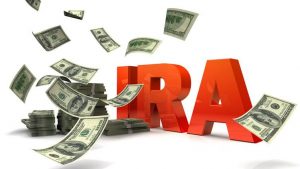
If the past 2 years has taught us one thing, it’s to start saving for our future now, more than ever. Never has the economy been so unstable in the past 5 years as it has recently with the world being affected by the COVID pandemic. Once countries shut down, so did their banking and financial institutions and as a result, the majority of them took a hit. Even foreign investments weren’t left alone, read about this more in this abstract
Stock prices plummeted, and so did people savings, as now they were left out of a job and had to reach out into their savings to survive. Many similar instances have taken place over history and in many different countries, and the clever ones have taken advantage of this and sought to build a more robust future for themselves so they do not get affected by any reoccurring incidences such as this.
One of the main activities that have seen an increase has been that of investing. There are many different types of investments that help you out in the long run, and we look at this, and the tax rules around one popular and recommended option that you can add to your portfolio today.
Different Types of Investments
There are several different ways you can capitalize your money. We look at 4 of these below:
Stocks: these belong to a specific company and are given out to the public to buy and keep, and every time the company does well, or declines, the stock prizes get affected accordingly. Some companies give out dividends while others don’t. when the company is successfully making profits it usually gives out dividends to those who have invested in their stocks.
Mutual Funds
The idea behind this one is that not just one person, but a group of people decide to put money into a fund together, and purchase the securities. These are typically managed by a portfolio manager, who is the dedicated contact who will look after your funds and either buy more or sell them during optimal times if given the rights to do so: https://www.investopedia.com/terms/p/portfoliomanager.asp
The investment type could be anything from bonds, to stocks and other types of valuable assets. The amount you capitalize could range from $1,000 per share to $10,000 per share and more. The portfolio for this can be as diverse as needed.
Exchange-Traded Funds (ETFs)
These have been around since the 90s and have grown in their popularity since then. They are similar to mutual funds but are usually placed on the stock exchange where trading happens almost daily and brokers buy and sell them continuously and fast enough to not lose leverage on the prizes. When the prize is high they will sell them and when it is low for a particular fund they will buy it, but this is not always the case.
The difference with these is that their value changes continuously as a result. The different types of securities under this umbrella include commodities, startups, individual businesses within different sectors, emerging markets, S&P 500 indexes and more. They are one of the more popular investor commodities in portfolios.
Bonds
To understand what these are, you would most likely compare it to a type of loan, given to a borrower, by an investor and considered a form of debt. The type of bond will be categorized as a government bond or corporate bond. In exchange for this capital amount, an interest rate will be accrued on top of it.
These are popular amongst businesses such as start-ups, financial operations and those who need to purchase large entities for projects and can be derived from banks and other types of financial institutions. It is recommended not to participate in these unless you are sure you can pay them back.
Alternative and Recommended Types of Investments
There is however one other type of investment that has gained high demand over the past few years but has been around since the beginning of time in many countries and cultures. This is an IRA investment and in particular a precious metal – Gold.
Precious metals have been a thing of almost any household, people either wear them or use them to make various items. Items such as Jewellery and furnishings have been created using either silver or gold but as the decades progressed, it has now become one of the best assets to keep as a currency for your future.
It is now being traded throughout the world and its price, no matter what the economy’s situation, has not been damaged as much as any other type of commodity. Investors have been drawn to it for various reasons as an asset to include in their portfolios, and some of these reasons include:
- It preserves its value and wealth
- While cash declines in its value, gold has always remained stable
- It can pay out dividends
- It is a diversified type of investment

A Gold IRA and Taxes
No commodity is without its taxes. The world gets taxed on almost any consumer good and Gold is no stranger to this. However, it’s not as typical as being taxed on any of the above-mentioned ones. Where the tax comes in, is in storing your gold, and this article on gold IRA tax rules can give you more in-depth information on this. When you open an IRA account, you will typically be buying gold of any type for example coins or bullions, bars, futures, Jewellery and ETFs, to name a few.
This however does not keep fund managers at bay, and they choose this option over any other. When an IRA finances your gold for you, you can pay anything up to 28% tax on it. However, your income will determine this. If you cannot afford to do this, the institution will choose a more feasible option for you. You can keep your gold in these accounts till you reach retirement age, which if you are in the USA is about 70 years old.
It is no doubt that you can get a better return on this type of venture as opposed to any other type, plus it does not disintegrate or wear out, and its value remains stable throughout time.







